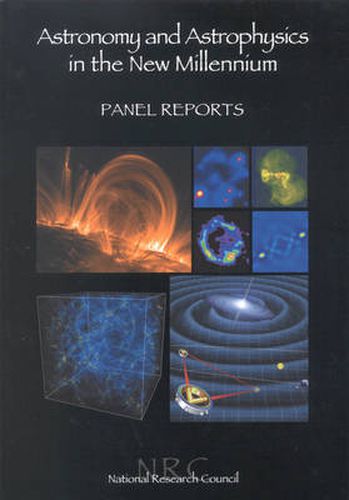Readings Newsletter
Become a Readings Member to make your shopping experience even easier.
Sign in or sign up for free!
You’re not far away from qualifying for FREE standard shipping within Australia
You’ve qualified for FREE standard shipping within Australia
The cart is loading…






Humanity has always looked at the heavens in fascination, but we now have the tools to make precise observations. We have begun to seek answers to profound questions about the universe through specific missions, programs, and expenditures. How should we continue this quest?
In this new book, a distinguished panel makes recommendations for the nation’s programs in astronomy and astrophysics, including a number of new initiatives for observing the universe. With the goal of optimum value, the recommendations address the role of federal research agencies, allocation of funding, training for scientists, competition and collaboration among space facilities, and much more.
The book goes on to identify the most pressing science questions and explains how specific efforts, from the Next Generation Space Telescope to theoretical studies, will help reveal the answers.
Astronomy has significant impact on science in general as well as on public imagination. The committee discusses how to integrate astronomical discoveries into our education system and our national life.
With a bold vision of the future and a practical plan for implementation, this book will be of interest to a wide array of readers.
$9.00 standard shipping within Australia
FREE standard shipping within Australia for orders over $100.00
Express & International shipping calculated at checkout
Humanity has always looked at the heavens in fascination, but we now have the tools to make precise observations. We have begun to seek answers to profound questions about the universe through specific missions, programs, and expenditures. How should we continue this quest?
In this new book, a distinguished panel makes recommendations for the nation’s programs in astronomy and astrophysics, including a number of new initiatives for observing the universe. With the goal of optimum value, the recommendations address the role of federal research agencies, allocation of funding, training for scientists, competition and collaboration among space facilities, and much more.
The book goes on to identify the most pressing science questions and explains how specific efforts, from the Next Generation Space Telescope to theoretical studies, will help reveal the answers.
Astronomy has significant impact on science in general as well as on public imagination. The committee discusses how to integrate astronomical discoveries into our education system and our national life.
With a bold vision of the future and a practical plan for implementation, this book will be of interest to a wide array of readers.